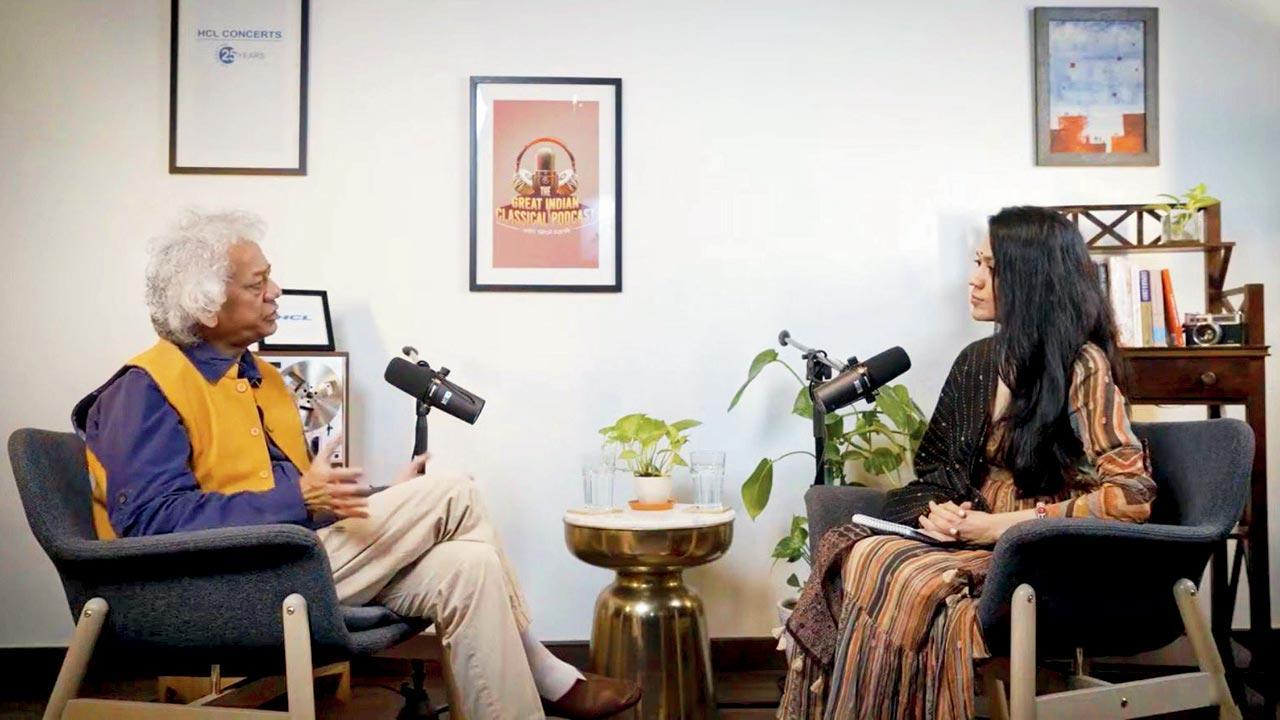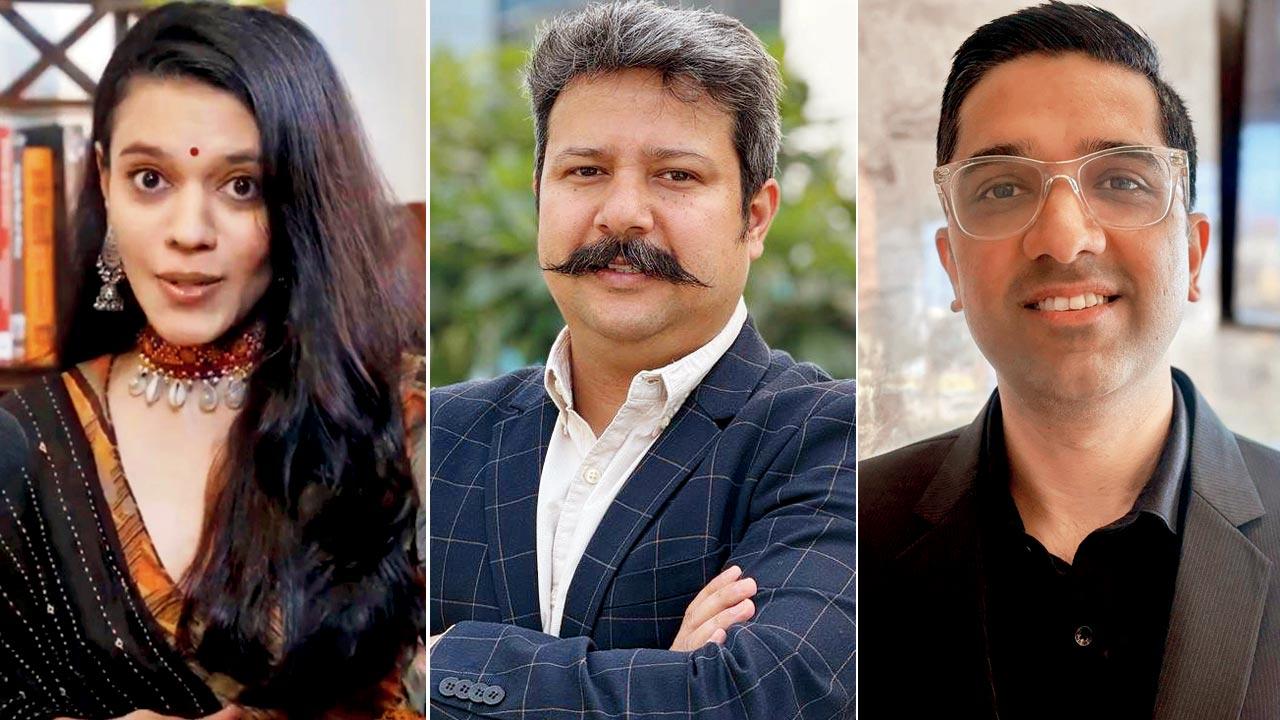Now streaming: A new podcast on classical music that hopes to make the genre more accessible to listeners, with a mix of storytelling and performance

Nirali Kartik with Indian classical percussionist Ustad Taufiq Qureshi
It's been a month since The Great Indian Classical Podcast with Nirali Kartik launched on YouTube.
This podcast is not for those who are simply looking for a quick taste of Indian classical music before moving on to the next thing; it is a devotion, a religion, says Indian classical vocalist, Nirali Kartik.
The idea of the podcast had long been germinating in her mind. “I want to know the backstory of classical musicians. I have a lust for knowledge and music is not something you can learn overnight. It goes on for decades, it never ends. In keeping with this spirit I wanted to start a podcast in which I can speak to great artistes. I came up with this because I felt that they would be able to nurture an interest and taste for classical music among people in this format,” she says.
The podcast has a Surabhi—Renuka Shahane and Siddharth Kak vibe—Doordarshan viewers will remember this famous show from the ’90s—where the artist shifts between storytelling and the performance. The most recent session was with flautist Pandit Rupak Kulkarni.
 Nirali Kartik; Anshul Adhikari and Nikhil Soni
Nirali Kartik; Anshul Adhikari and Nikhil Soni
Kartik is collaborating with HCL Concerts, known to hold programmes of the genre in the city.
Nikhil Soni, Group Manager, Marketing, HCL, feels that the point of the podcast is that classical music lovers can now find it in a format that is different from the usual. “The podcast needs to cater to the classical lover as well as attract someone who might be open to seeing and hearing the stories of these great artistes. The same artistes, when doing concerts, might not have the time to pause and speak about the story behind a well-loved piece of music. But via this platform we hope
that there is not too much strain on time and you can play and watch these episodes without the rhythm of the conversation being cut midway,” he says.
Anshul Adhikari, Head of HCL Concerts, explains that the podcast is trying to balance the authenticity of the genre by not making it too mass-produced but interesting enough to draw younger, semi-interested Indian classical lovers. “We would love more new listeners but we have a legacy of bringing authentic, unblemished Indian classical to those who loved the unadulterated form,” says Adhikari.
The “Bollywoodisation” of Indian classical music is a sore subject among many true blue fans of the genre. But it might be presumptuous to say, despite the massive record sales of Indian Pop, that there aren’t enough young takers for the classical genre anymore.
We ask Kartik about the OTT Marathi movie Disciple, based on the story of a classical vocalist who struggles with self-doubt and faculties. She vehemently argues that it is not a representation of those who take it as a vocation.
“It is the presentation of the Indian classical musical world, it’s a representation of a failed artiste. So that doesn’t mean every artist feels like that. It also talks about the failures and focuses on it, so it’s not a representation of classical music; it [the genre] is a very, very blissful world to be in,” she says, adding, “If you are meant to be an artiste, you don’t have to force yourself. If you’re not meant to be [an artiste], it’s like a person entering the wrong field, they are going to be unhappy no matter the field. But personally, being a musician and being a student, I feel like it is a very blissful world.”
The youth in the field are as ambitious as any other as well, “Indian classical music has so much to offer in so many aspects. In terms of wellness, soul. It helps us eliminate the noise around us. It’s a very adventurous genre because you have to practise so much to reach a certain level or to a certain calibre. That gives a lot for an artist to explore and experiment. I feel like this kind of a challenging aspect of classical music has attracted a lot of young listeners. Those who take it up as a vocation are really quite competitive, which I personally like because there is motivation to do better. There are many new people joining. The demand for classical music is increasing and even artistes have more aspects to explore.
“That is what we are trying to touch upon in the great Indian classical music podcast,” she adds.
 Subscribe today by clicking the link and stay updated with the latest news!" Click here!
Subscribe today by clicking the link and stay updated with the latest news!" Click here!










